High-functioning anxiety is a nuanced condition. On the surface, individuals may appear successful, organized, and composed—yet beneath that veneer lies a constant undercurrent of worry, perfectionism, and self-doubt. Because these individuals often manage to maintain performance at work, school, or in social settings, their distress can go unnoticed, both by those around them and by themselves. Over time, the very coping skills that help them succeed become the mask that prevents them from recognizing—and treating—the clinical anxiety beneath.
This article explores the hallmarks of high-functioning anxiety, why it so often goes undiagnosed, and how targeted treatment approaches can address both the overt coping strategies and the underlying emotional needs.
Understanding High-Functioning Anxiety
High-functioning anxiety isn’t an official diagnosis in the DSM-5, but it’s a term widely used to describe people who meet the criteria for an anxiety disorder yet manage to keep their lives running smoothly. Common features include:
- Perfectionism: Setting unrealistically high standards and experiencing crippling self-criticism when they fall short.
- Overcommitment: Taking on too many responsibilities to validate self-worth and prevent feelings of inadequacy.
- People-Pleasing: Going to great lengths to gain approval, often at the expense of personal boundaries.
- Chronic Worry: A persistent internal narrative of “What if?” that never lets up, even when life seems to be going well.
- Physical Tension: Muscle tightness, headaches, or gastrointestinal distress that can accompany sustained stress.
While these traits can foster achievement and reliability, they also drive a cycle of anxiety that worsens over time. Ironically, the very skills that help these individuals mask their distress can become detrimental, leading to burnout, relationship strain, and declining mental health.
How Coping Skills Become Barriers to Care
In many cases, external validation reinforces those coping skills. A colleague praises meticulous attention to detail, a friend admires constant availability, or a teacher lauds flawless presentation. Each compliment reinforces the idea that these behaviors are not only acceptable but desirable.
However, when coping strategies become identity, it becomes difficult to see them as symptoms. Someone might think, “I’m not anxious—I’m just thorough,” or “I’m just a hard worker.” This self-reinforcement can delay help-seeking until the anxiety becomes overwhelming or manifests in physical illness.
Furthermore, high-functioning individuals often believe that admitting to feeling anxious or burnt-out would undermine their accomplishments or lead others to question their competence. This fear of stigma only deepens the isolation and reinforces the mask.
Clinical Risks of Untreated High-Functioning Anxiety
Even if day-to-day functioning remains intact for a while, unaddressed anxiety can lead to serious consequences:
- Burnout: Constant overdrive without adequate rest depletes physical and emotional reserves.
- Depression: Chronic stress and self-criticism increase the risk of depressive episodes.
- Substance Use: Some turn to alcohol, caffeine, or other substances to self-medicate.
- Physical Health Problems: Long-term stress contributes to cardiovascular issues, gastrointestinal disorders, and weakened immunity.
- Relationship Strain: Perfectionism and people-pleasing often lead to resentment, boundary violations, and emotional disconnect.
Early intervention is crucial. The sooner high-functioning anxiety is recognized as a legitimate clinical issue, the better the outcomes in terms of symptom management and overall quality of life.
Recognizing When Coping Skills Aren’t Enough
Even the best self-help strategies—exercise, journaling, mindfulness—can fall short when anxiety is deeply ingrained. Signs that coping skills are masking clinical needs include:
- Intolerance of Downtime: Feeling guilty or anxious when not actively busy.
- Ritualized Behaviors: Needing to follow rigid routines to feel in control.
- Perfection Paralysis: Avoiding tasks for fear they won’t be done flawlessly.
- Constant Self-Monitoring: Obsessively evaluating one’s performance, appearance, or social interactions.
- Sleep Disturbances: Insomnia or nonrestorative sleep despite physical exhaustion.
When these behaviors cause distress—even if productivity remains high—professional support can help unmask the anxiety and address its root causes.
The Role of Specialized Outpatient Care
For many high-functioning individuals, traditional outpatient sessions—while helpful—may not provide the consistent support needed to unlearn deeply rooted patterns. An Outpatient Mental Health Therapy Massachusetts program offers flexible, ongoing therapy that integrates individual sessions with group support and skills training. This structure allows clients to build new coping mechanisms in real time, receive peer encouragement, and maintain treatment momentum without disrupting daily life.
Evidence-Based Therapies for High-Functioning Anxiety
Several therapeutic modalities have proven effective in treating anxiety that remains hidden beneath high performance:
- Cognitive-Behavioral Therapy (CBT): Helps clients identify and challenge cognitive distortions—such as all-or-nothing thinking and catastrophizing—that fuel anxiety. Behavioral experiments and graded exposure tasks guide individuals to test their fears in manageable steps.
- Acceptance and Commitment Therapy (ACT): Focuses on accepting difficult emotions rather than avoiding them, while committing to values-driven action. This approach can disarm the relentless pursuit of perfection by helping clients embrace uncertainty.
- Dialectical Behavior Therapy (DBT): Teaches distress tolerance, emotion regulation, interpersonal effectiveness, and mindfulness. DBT skills support those who habitually suppress or overcontrol their emotions.
- Mindfulness-Based Stress Reduction (MBSR): Uses meditation and body-awareness exercises to anchor clients in the present moment, reducing rumination and hypervigilance.
Pairing these approaches with regular symptom monitoring allows therapists to tailor interventions and adjust treatment plans dynamically.
When More Intensive Support Is Needed
If high-functioning anxiety persists despite standard outpatient care, a more structured setting may be warranted. Programs such as a Half Day Treatment Program Massachusetts offer several hours of therapy, skills groups, and psychiatric consultation each day, giving clients the time and space to practice new strategies in a supportive environment. This level of care bridges the gap between traditional outpatient therapy and full-time residential treatment, ensuring that individuals receive consistent reinforcement without needing to pause work or family commitments.
The Value of Group and Peer Support
Group-based interventions can be particularly powerful for high-functioning anxiety. In a supportive group setting, clients realize they are not alone in their struggles, which helps dismantle shame and stigma. Groups led by licensed professionals focus on:
- Skill-Building Workshops: Targeted sessions on relaxation techniques, time management, and assertiveness.
- Process Groups: Open forums for sharing experiences, receiving feedback, and practicing vulnerability.
- Psychoeducation: Learning about the physiology of anxiety, stress responses, and resilience factors.
This communal approach accelerates growth by offering real-time feedback and modeling healthier behaviors.
Integrating Medication Wisely
While many high-functioning individuals resist medication out of concern for side effects or perceived dependence, pharmacotherapy can be a valuable adjunct when anxiety is severe. Selective serotonin reuptake inhibitors (SSRIs), serotonin-norepinephrine reuptake inhibitors (SNRIs), or targeted anxiolytics may help regulate neurochemical imbalances, allowing therapy to be more effective. A comprehensive treatment plan should include collaboration between therapists and psychiatrists to monitor benefits and adjust dosages as needed.
Measuring Progress and Adjusting Course
Effective treatment of high-functioning anxiety relies on regular assessment. Tools like the GAD-7 questionnaire, daily symptom logs, and behavioral activation charts help both client and clinician track improvements and identify areas needing extra focus. Frequent check-ins ensure that treatment remains aligned with evolving goals and life circumstances.
Why Choose Foundations Group Behavioral Health
As a leading Behavioral Health Treatment Center Massachusetts, Foundations Group Behavioral Health specializes in the nuanced needs of high-functioning anxiety. Our multidisciplinary team offers individualized therapy, intensive skills groups, and psychiatric consultation under one roof. We recognize that success in work or school can conceal significant distress—and we provide an empathetic, evidence-based pathway to recovery.
Conclusion
High-functioning anxiety can be deceptively resilient, hidden behind achievements and reinforced by admiration. Yet beneath that mask lies a relentless cycle of worry and self-criticism that demands professional attention. Whether through targeted outpatient programs, structured partial-day treatment, or integrative group therapies, uncovering the clinical needs masked by coping skills is the first step toward genuine well-being.
If you or someone you know struggles with hidden anxiety, Foundations Group Behavioral Health is here to help. Call us at (833) 986-2594 to learn how our Anxiety Treatment Program Treatment Massachusetts can guide you beyond mere coping toward lasting, meaningful change.
Frequently Asked Questions (FAQs)
1. What is high-functioning anxiety?
High-functioning anxiety describes individuals who maintain success in work and relationships yet experience persistent worry, perfectionism, and self-doubt beneath the surface.
2. How do coping skills mask clinical anxiety?
Behaviors like overcommitment, people-pleasing, and perfectionism can conceal underlying distress, leading individuals to mistake anxiety symptoms for admirable traits.
3. What signs indicate it’s time to seek professional help?
Seek help if you experience chronic physical tension, burnout, sleep disturbances, or if your coping strategies no longer relieve distress and begin to impair your well-being.
4. How is high-functioning anxiety typically treated?
Treatment often includes evidence-based therapies such as cognitive-behavioral therapy, acceptance and commitment therapy, or dialectical behavior therapy to address both symptoms and root causes.
5. When might more intensive outpatient care be recommended?
If standard weekly sessions aren’t sufficient, programs like a half-day treatment program offer structured support for several hours each day without requiring residential care.








